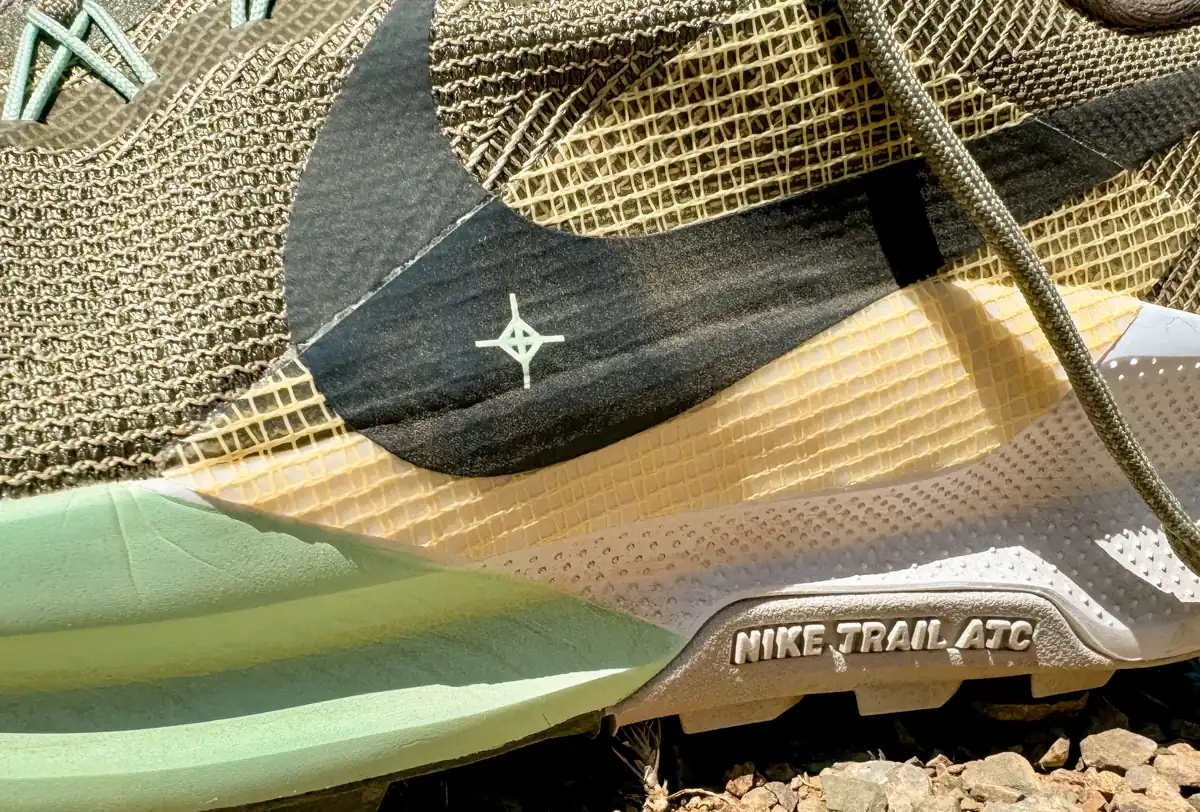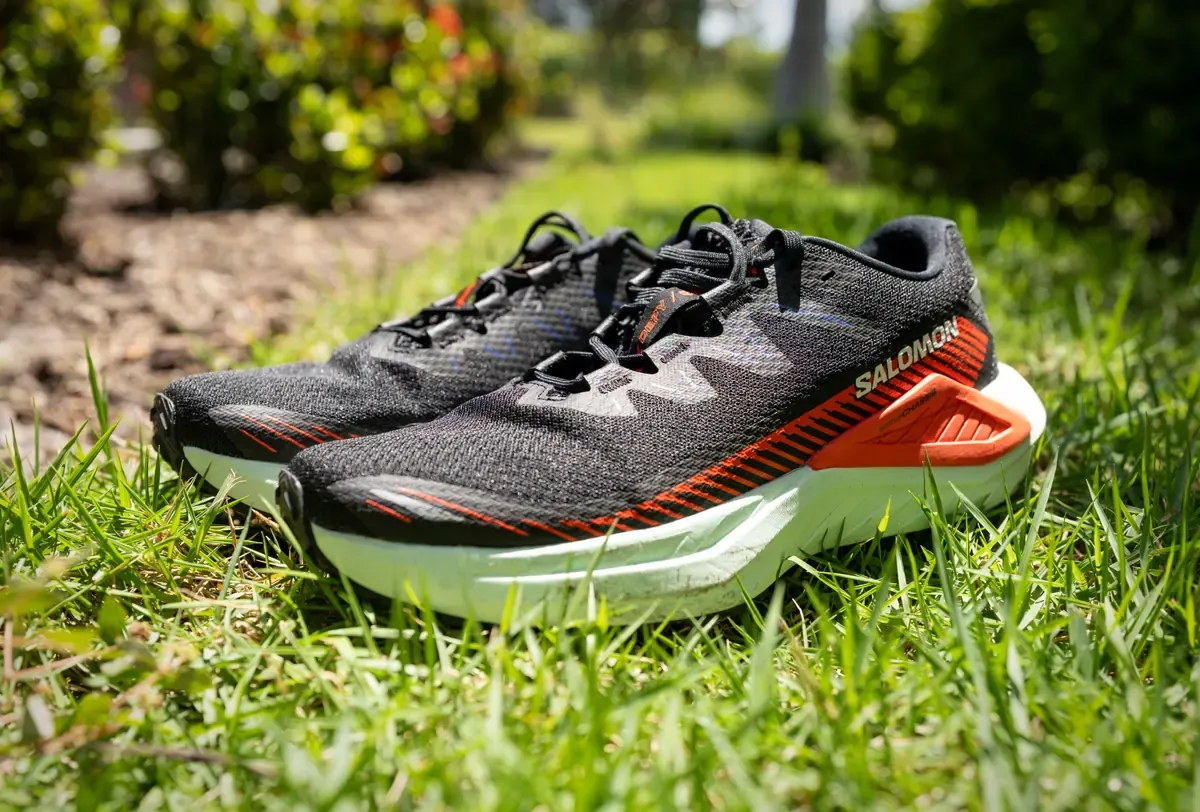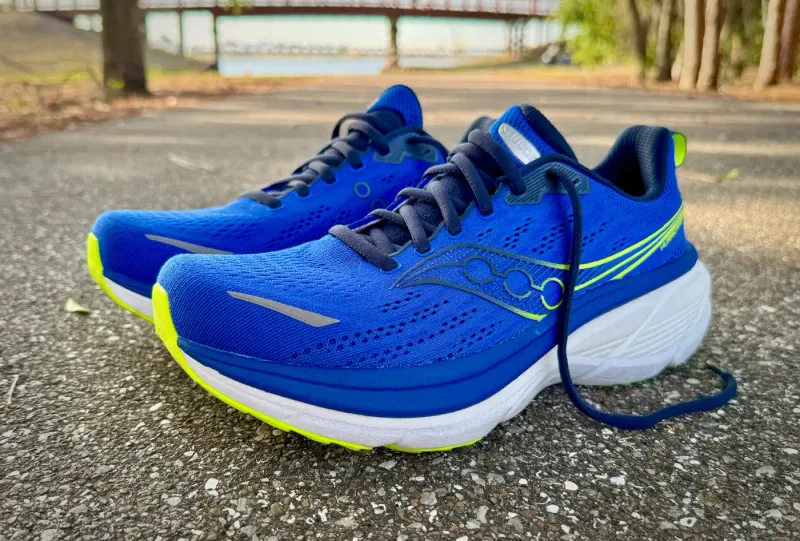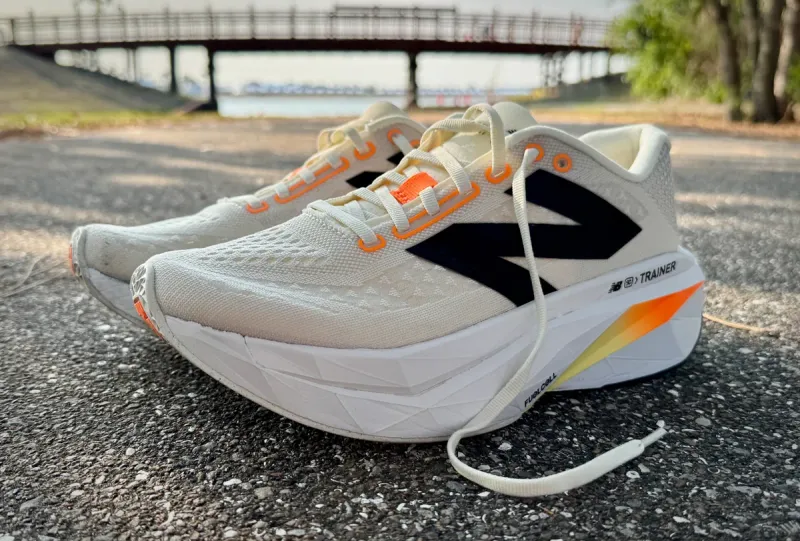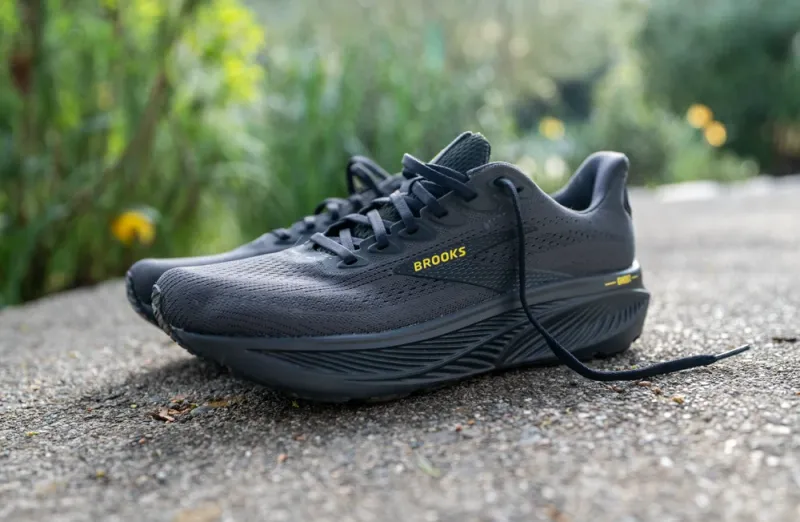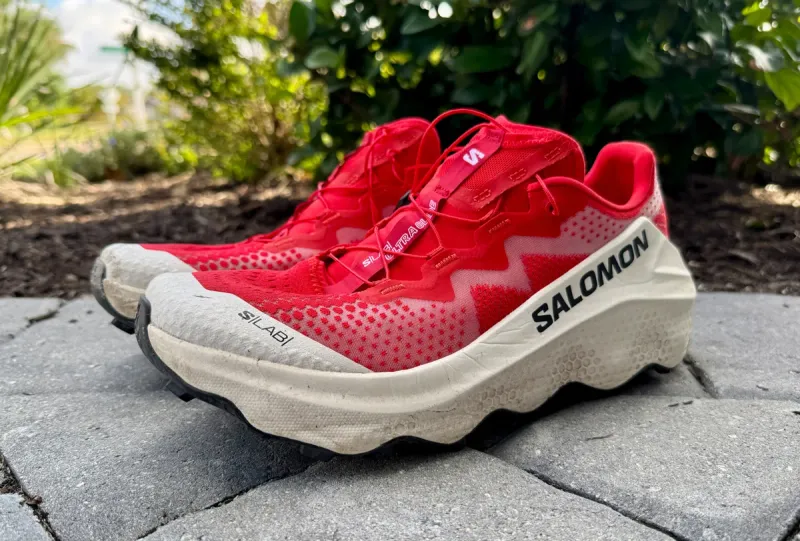When I first heard about the Salomon DRX Defy GRVL, I was keen to get hold of a pair, as I've noticed a real increase in demand lately, for readers wanting to learn more about do-it-all road-to-trail running shoes.
After logging several miles on a mix of pavement, gravel paths, and light trails, I was pleasantly surprised by how well this shoe handled the transitions.
It's a solid option for runners who frequently move between different surfaces and want a lightweight shoe that can deliver - but it's not perfect, let me explain...
Key Specifications
- Price: $140 at Salomon.com / REI.com / Sportsshoes.com (For my UK readers)
- Weight: 8.8 oz (249g) for US Men's size 9
- Drop: 8mm (Heel: 34mm, Forefoot: 26mm)
- Upper: 3D Mesh with SensiFit overlays
- Midsole: EnergyFOAM with Active Chassis for support
- Outsole: Road Contagrip rubber with gravel-bike inspired tread
- Extra Attributes: OrthoLite diecut sockliner, flat laces, recycled materials
Sizing and Fit
The DRX Defy GRVL fits true to size for me.
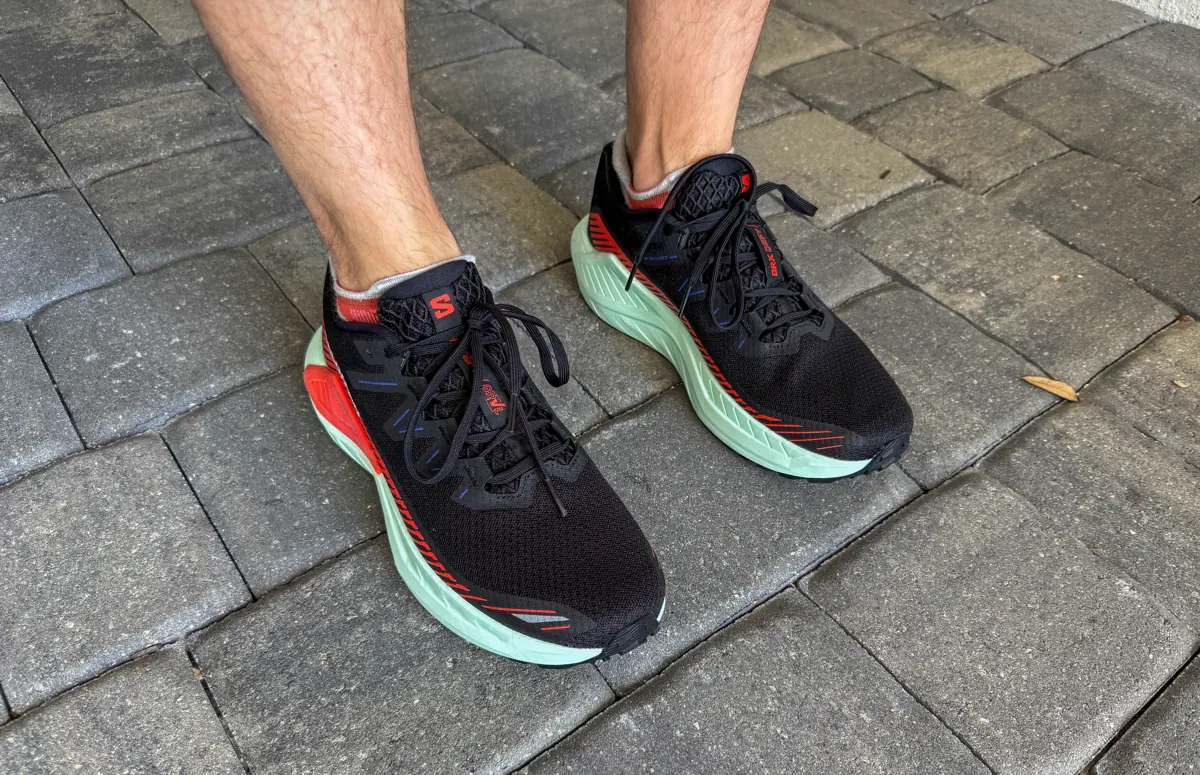
The toe box is notably wider than typical Salomon shoes (except for the Aeroglide 3), offering ample room for toe splay during longer runs.
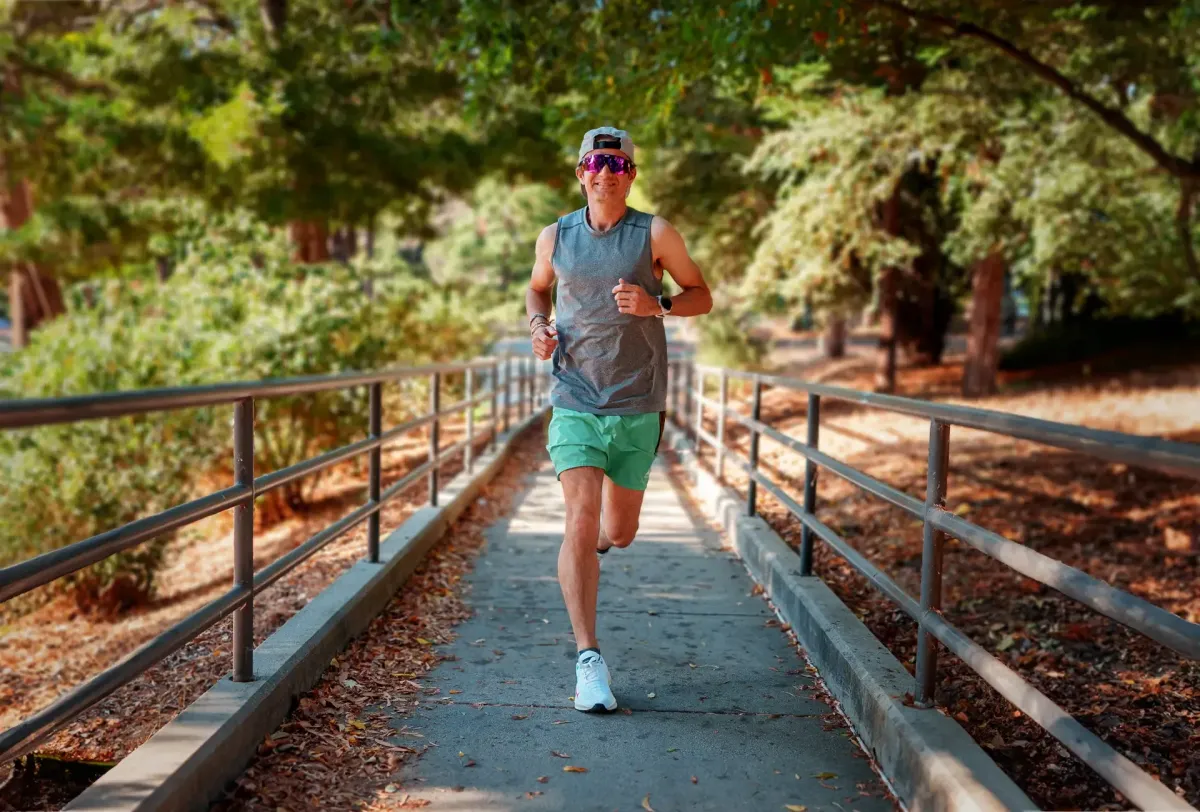
The midfoot and heel areas are more relaxed, which might require some lacing adjustments to achieve a secure fit, especially on uneven terrain.
Using the extra lace hole to do a racers loop heel lock lace up will help, if you need it.
Performance Review
The Salomon DRX Defy GRVL surprised me in a lot of ways.
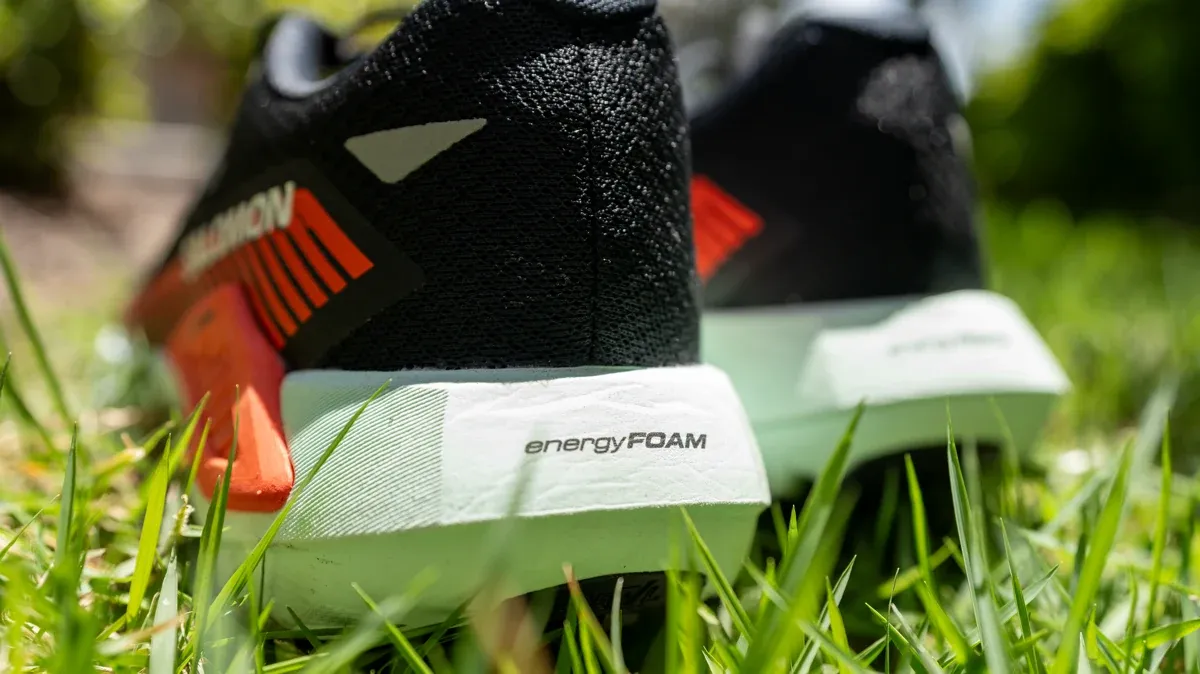
On gravel and hardpack trails, the ride feels smooth, stable, and confident. It's worth noting that the EnergyFOAM midsole isn’t super bouncy, but it offers enough cushioning in the heel to feel protective on descents and longer efforts.
So, if you like that max cushion feel in your running shoes, these don't have that - instead they have a more balance ride which offers some a bit of response on the roads and a good amount of control on trails.
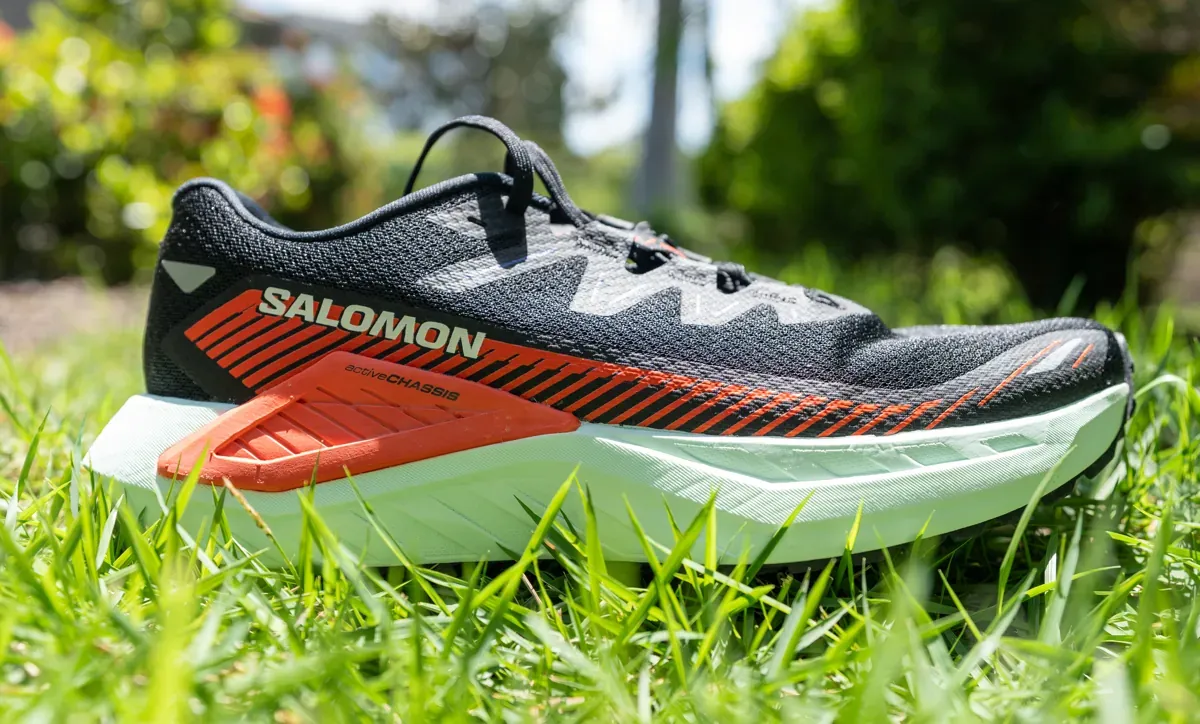
They certainly feel their best if you land towards your heel than the forefoot, as thats where most of the cushioning is, and the 8mm drop (which is on the higher end) does lend itself better to slower runs and those who heel strike.
The EnergyFOAM midsole provides a nice balance between softness and structure that keeps things controlled without feeling too overly stiff.
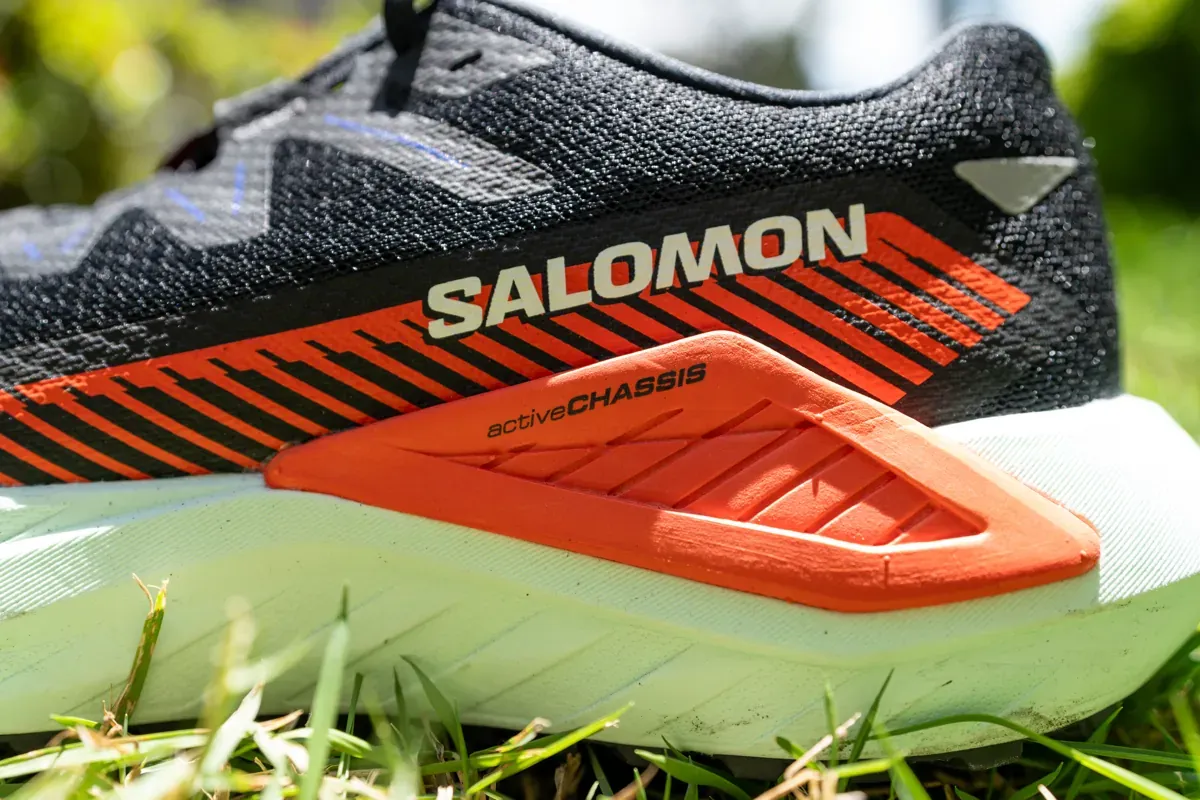
The activeChassis provides some extra support and stability for those who have mild pronation issues in their gait.
That said, midfoot landings feel a bit flat for me. There’s not much energy return through the middle of the shoe, and I definitely notice a drop-off in responsiveness when I try to stay more midfoot or shift toward my forefoot - which is how I like to run.
It's not harsh or punishing, it just feels a little muted and dull in that zone, which could be frustrating if you’re someone who runs more efficiently off your midfoot or forefoot.
For me, I started adjusting my stride slightly to take advantage of that more stable, cushioned heel just to get more from the shoe.
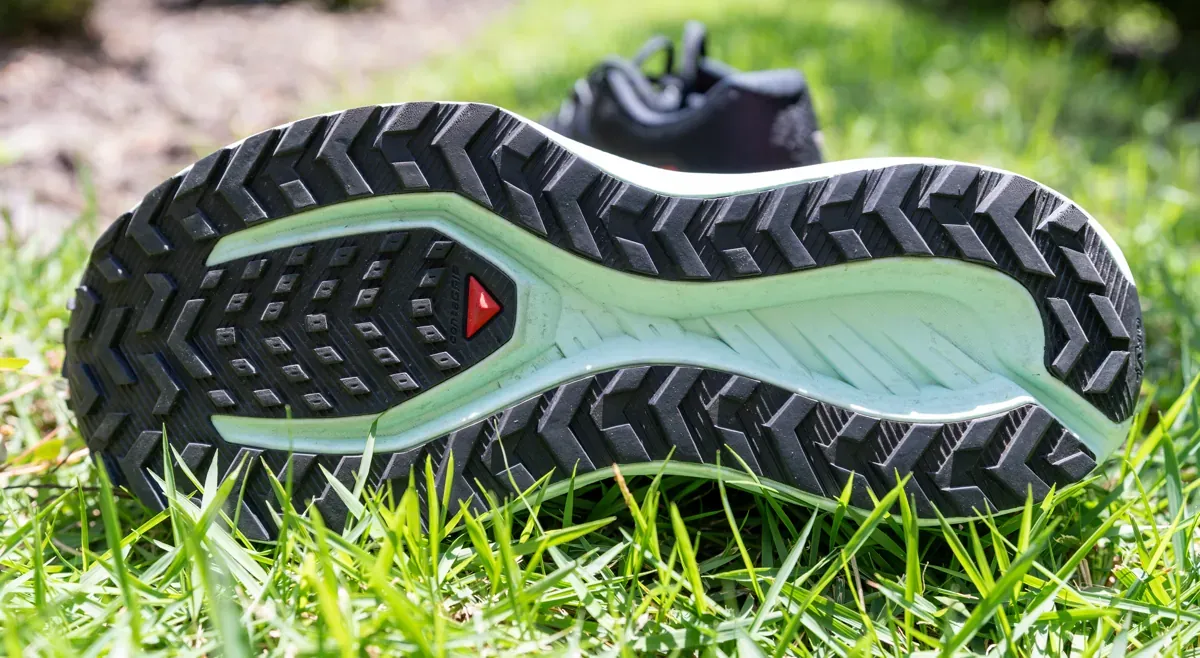
The outsole grip is another highlight; the Contagrip rubber and moderate lugs do a great job of biting into gravel, dirt, and even pavement without feeling overbuilt.
It’s not a trail shoe meant for super technical terrain or deep mud, but for dry fire roads, park paths, sidewalks, and those winding, sometimes rutted gravel routes, the traction feels well-tuned.
It’s grippy without being aggressive, which also helps it feel smooth and unobtrusive on pavement sections.
On road-to-trail transitions, the shoe really hits its stride. I can leave my house, run a mile or two of pavement, peel off onto crushed gravel and just like any good road-to-trail shoe, they chomp of anything that comes my way.
That kind of versatility is exactly what makes this shoe stand out, it works best when the route doesn’t fit neatly into a single category.
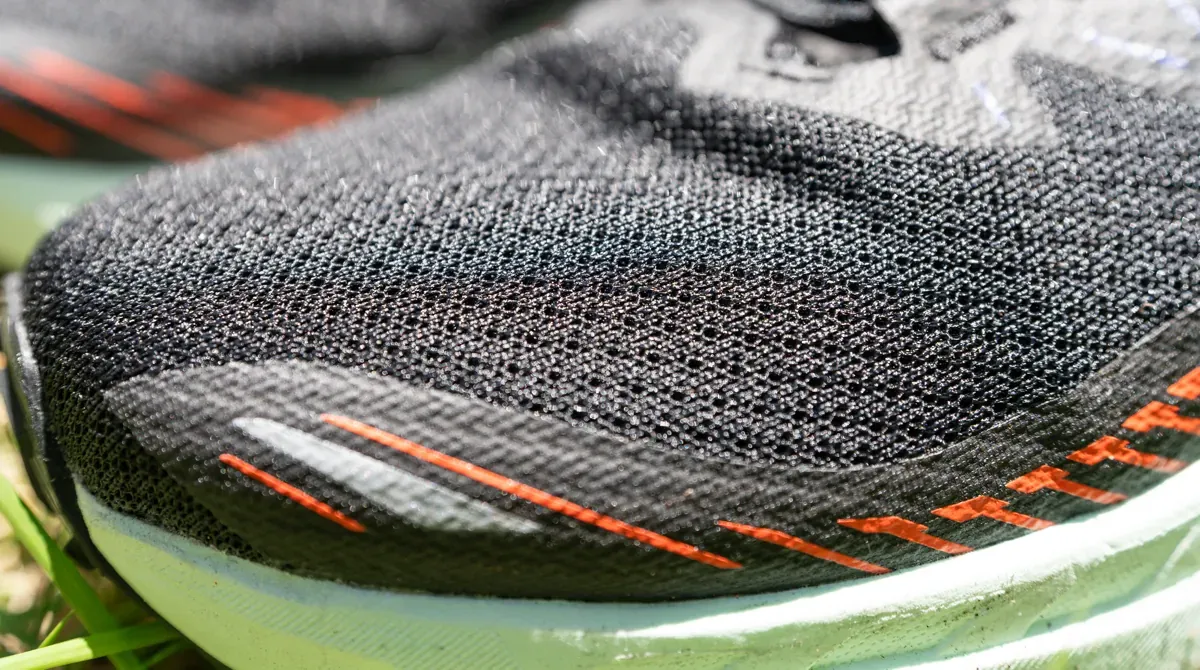
The upper unfortunately lacks breathability however but it does hold the foot in place well, for the most part, especially with that wider toe box that allows for some natural movement and toe splay.
That’s a rare feature from Salomon, and one I hope they carry over into more models. I do think the midfoot could benefit from a bit more structure.
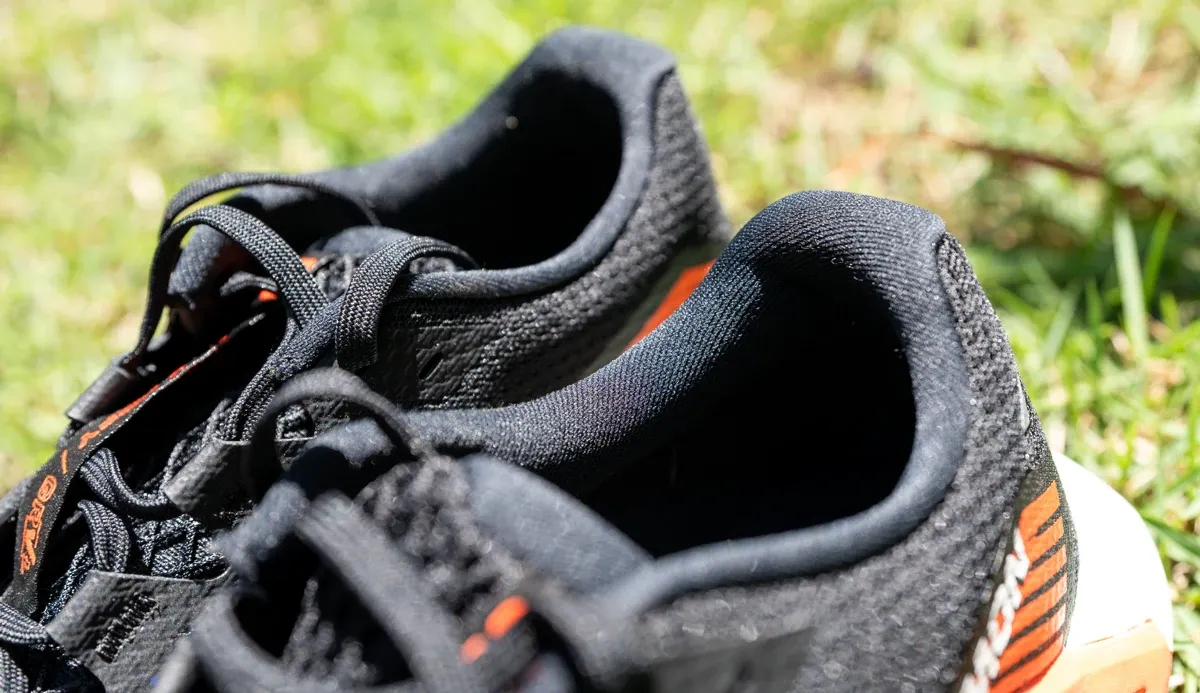
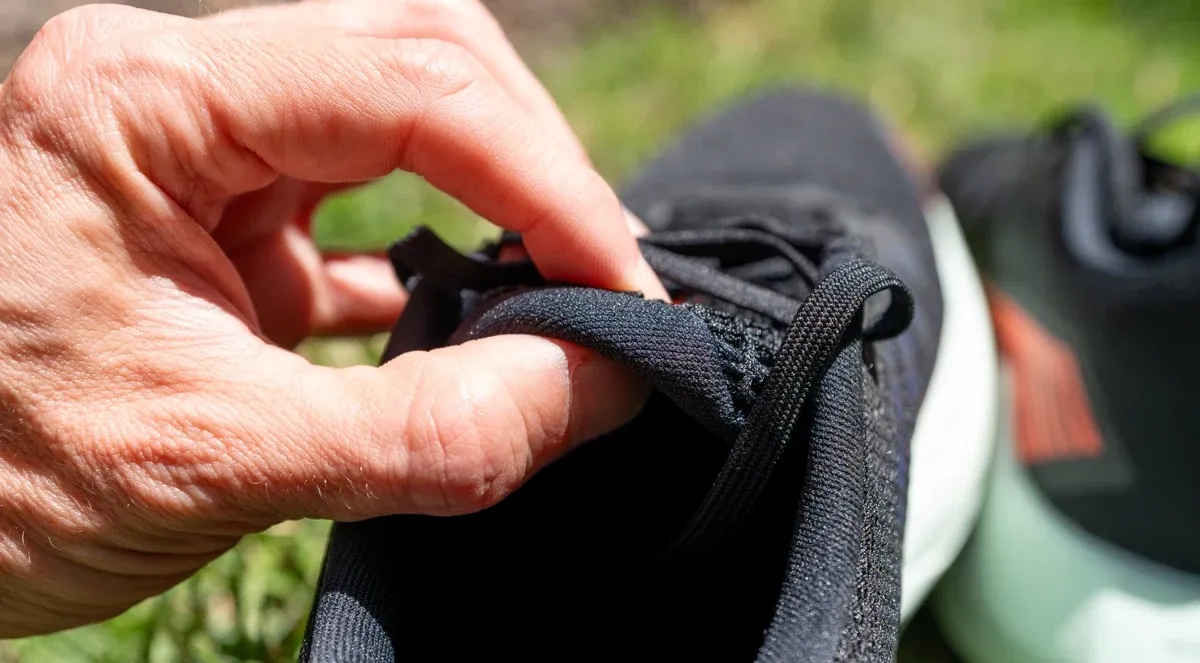
The tongue, collars, and heel counter have nice soft padding
There have been times when I felt the lacing system didn’t quite hold me securely enough, particularly on uneven sidehills. And the tongue not being gusseted means it can shift a little during runs, which isn't a big issue but something I noticed.
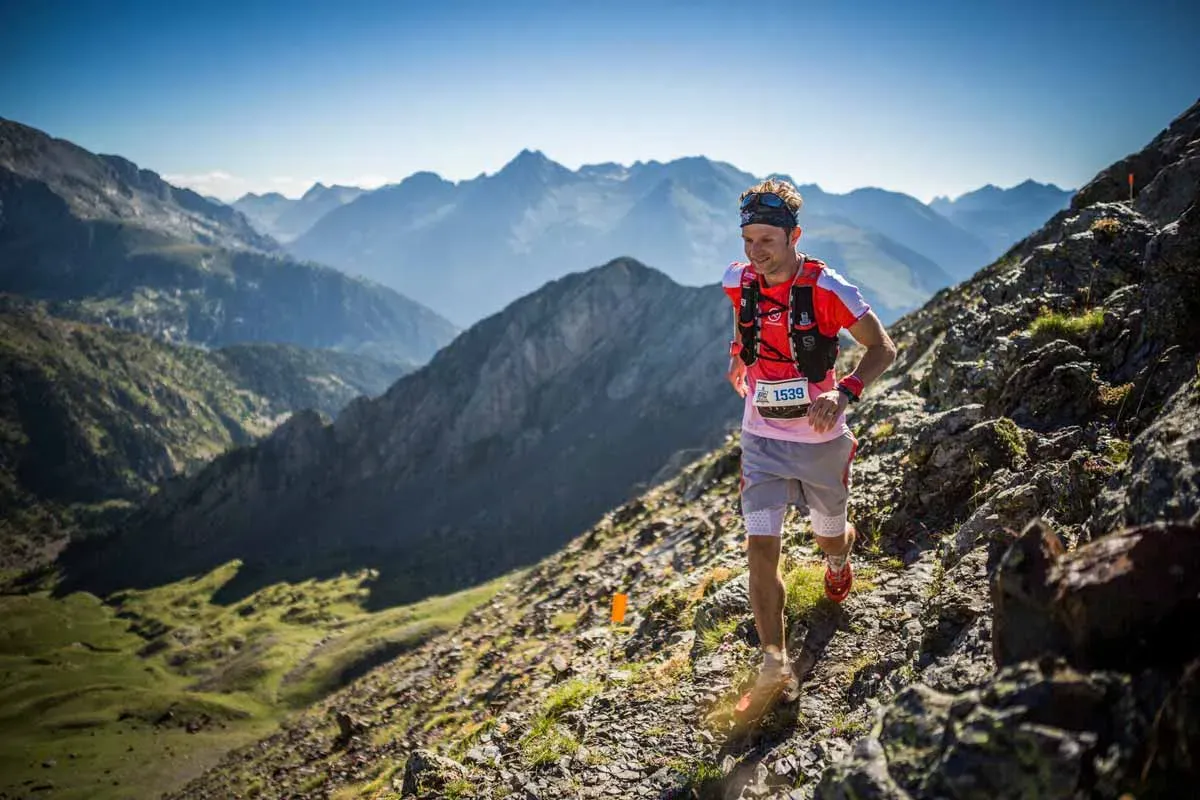
This isn’t a shoe I’d reach for if I wanted a high-rebound, snappy tempo session. It doesn’t have that springy, responsive feel you get from a speed training shoe with energetic foam.
But for steady-paced miles, zone 2 endurance runs, or just cruising on a mix of terrain? It works beautifully.
My Verdict
The Salomon DRX Defy GRVL is a well-executed hybrid shoe that caters to runners who frequently transition between road, gravel, and light trail surfaces.
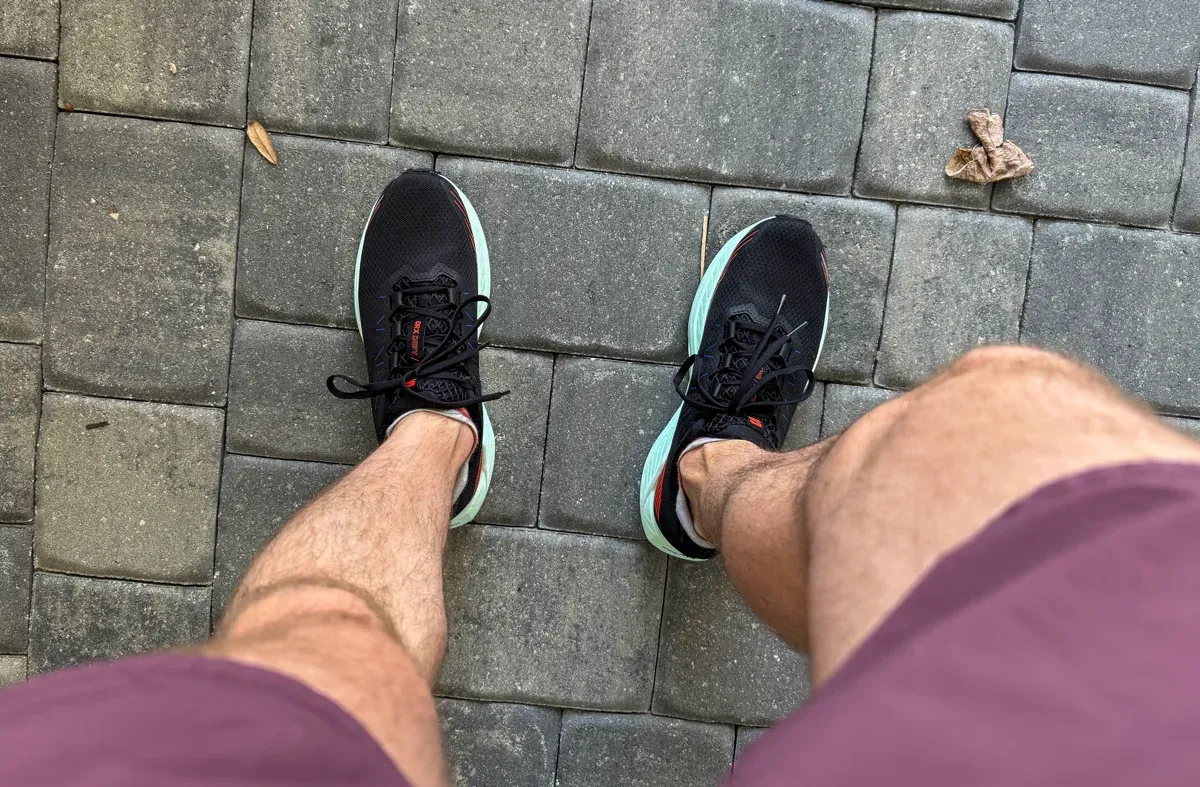
Its strengths lie in its versatility, comfort, and stability and for $140 you get a well designed shoe that performs admirably. That said there are better road to trail running shoes out there.
So, if you're looking for a reliable shoe to handle diverse running environments, the DRX Defy GRVL is worth considering.
You can grab a pair for $140 at the following trusted online retailers:
Salomon.com / REI.com / Sportsshoes.com (For my UK readers)
If you're still shopping around, head over to my Best Road-To-Trail Running shoes roundup to discover my top rated alternatives:
